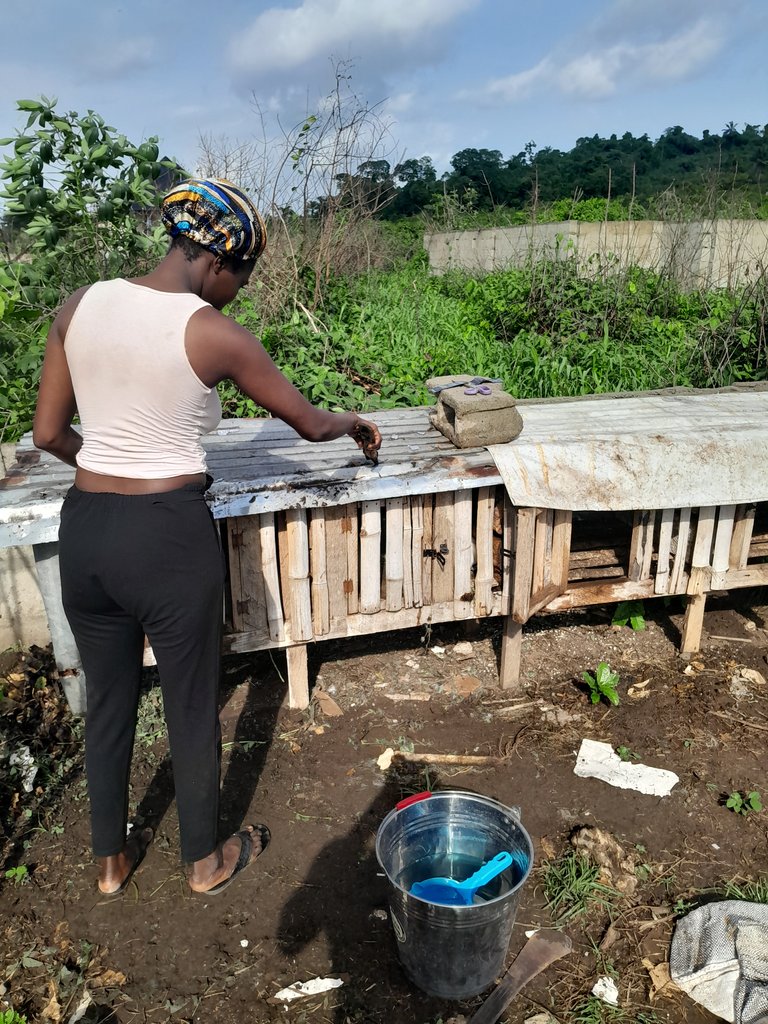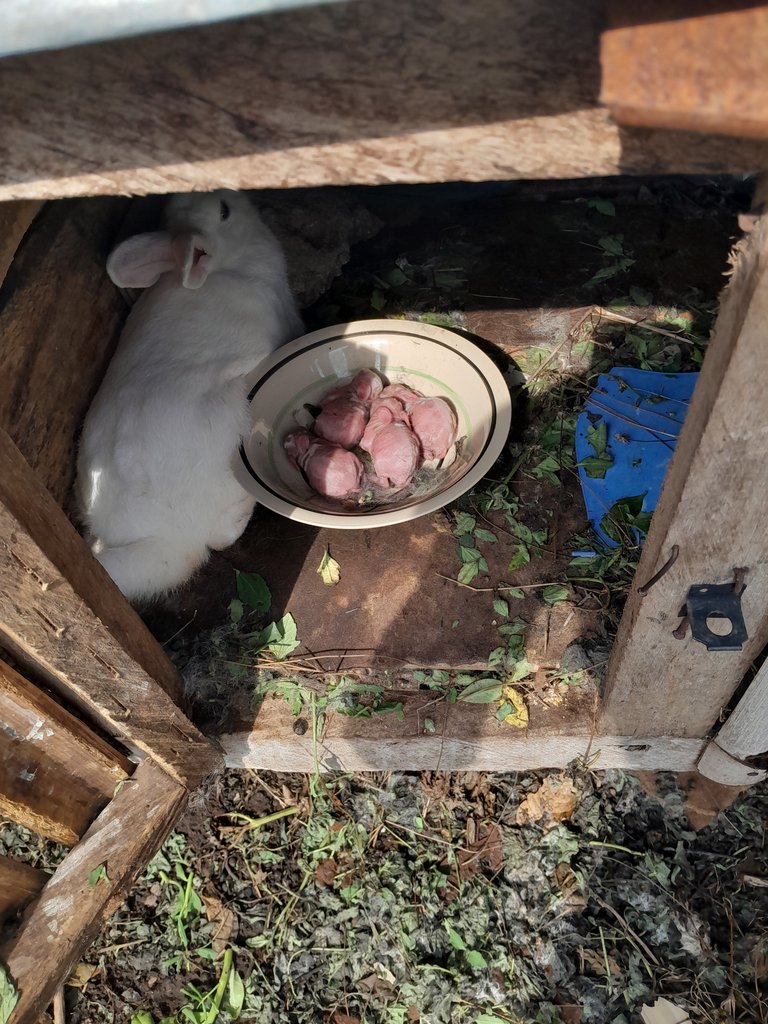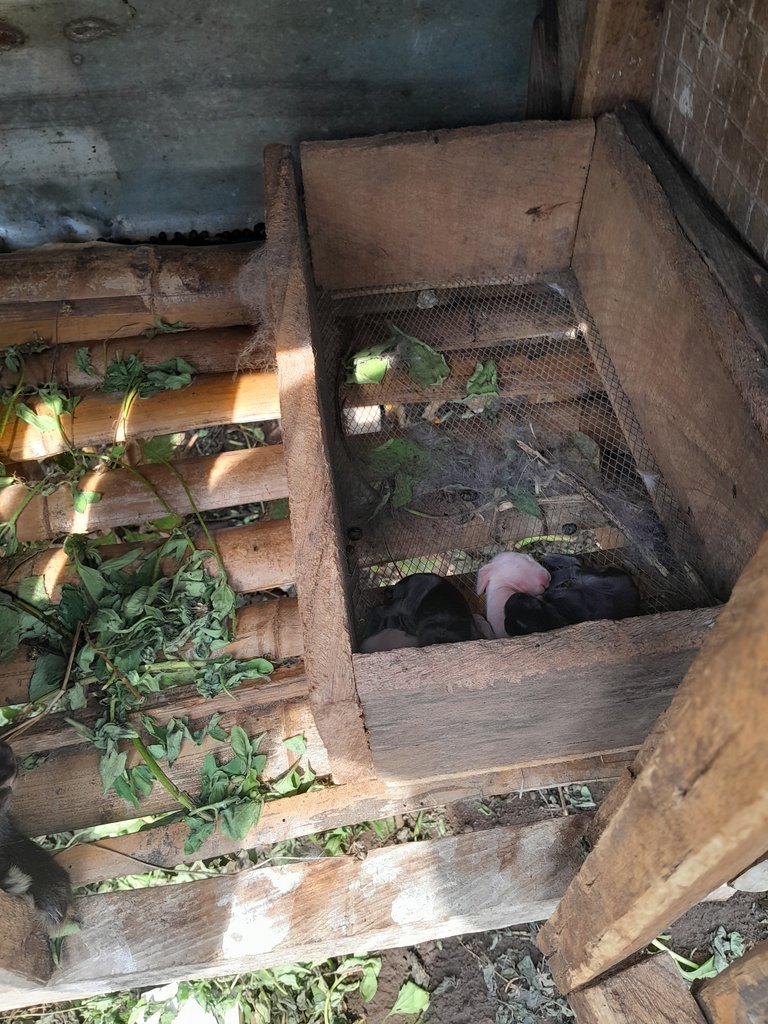The Farmer's Truth in a Fleeing Nation
I continued with my work in the garden today since we are still on holiday. I usually stop during the week when we resume work, but today is Saturday, and as usual, I dedicate this time to working in the garden, whether we're on holiday or not.
In my garden, I planted a variety of vegetables and some food crops that can be harvested within a year. The only cash crop I planted is a banana plantation. We all know that bananas are not crops that die off easily after harvest, as they usually replace themselves with new suckers. I’ve heard of investors in farming who cash out big time through ventures like this

Recently, in my country, there’s been a lot of talk about the gains farmers are making these days—unlike in the past when farmers were not truly valued. I think this shift is because, back then, almost every household had a farm and produced their own food, if not in every aspect, then at least in part. But what do we have nowadays? The influx of youth from rural areas to cities is alarming, all in search of white-collar jobs. If you ask a young person today about taking a job in agriculture, many would decline the offer. We’ve been brainwashed into thinking farming is a dirty business and a backwards venture. You’ll often hear things like, "You want to follow in the footsteps of our fathers who worked all their lives on the farm without any tangible progress?"


But what do we see these days? People are beginning to realize that a 9-to-5 job alone can’t settle all the bills. In recent months, there’s been a noticeable rise in farming activities across the country. Even those who can’t farm in remote settlements due to their job requirements are now practising sack and tank farming. Many are venturing into livestock farming; especially fishery, poultry, and other forms of animal husbandry.
Another important point to consider is this: if we all venture into tech or choose white-collar jobs, who will feed the nation? I believe that any nation that can not feed itself is sitting on a time bomb. There’s an adage in my local language that says, "Ti ebi ba ti kuro ninu ìṣé, ìṣé ti búsẹ," meaning "if hunger is removed from poverty, then poverty will lose its sting."
Our government must do the needful by sensitizing the youth and investing more in mechanized farming. I’ve observed the rapid growth and advanced farming techniques in China. Sometimes, I wonder where we got it wrong in this country. It seems every aspect of our lives needs a divine redirection.
Then there’s the rising number of youths travelling abroad; not just to study but also to escape the harsh realities of life in their fatherland. Isn’t it ironic that we now run to the lands of those who were once our colonial masters? It’s sad that we’ve become our own oppressors. No one really cares anymore. Even I, as I write this, must admit I’m guilty. If I find the opportunity, wouldn’t I also hop on the next train to the "promised land"? That’s what people call it these days—the Japa syndrome. It is well with us.
Anyway, I’ve digressed too much. Back to today’s events. I fed the animals and gave them water. However, while feeding the rabbits, I noticed their hutch was leaking. Sadly, two of the newborn rabbits had already died. It’s heartbreaking, but what could I do? I took my time to find a solution to the leakage even though I’m not skilled in such repairs. I used a canopy to cover the area where I suspected the leak was. After fixing it, I poured water on it to confirm, and thankfully, it wasn’t leaking anymore.
I also had to take care of the goat that recently lost its mother. I’ve been feeding it with milk for about two weeks now. I only hope it survives.
This is such a very sad reality today
Yes. What can we do about it?
Keep up the good work
It will surely survive my dear
Thanks for stopping by. I appreciate it.
You are highly welcomed